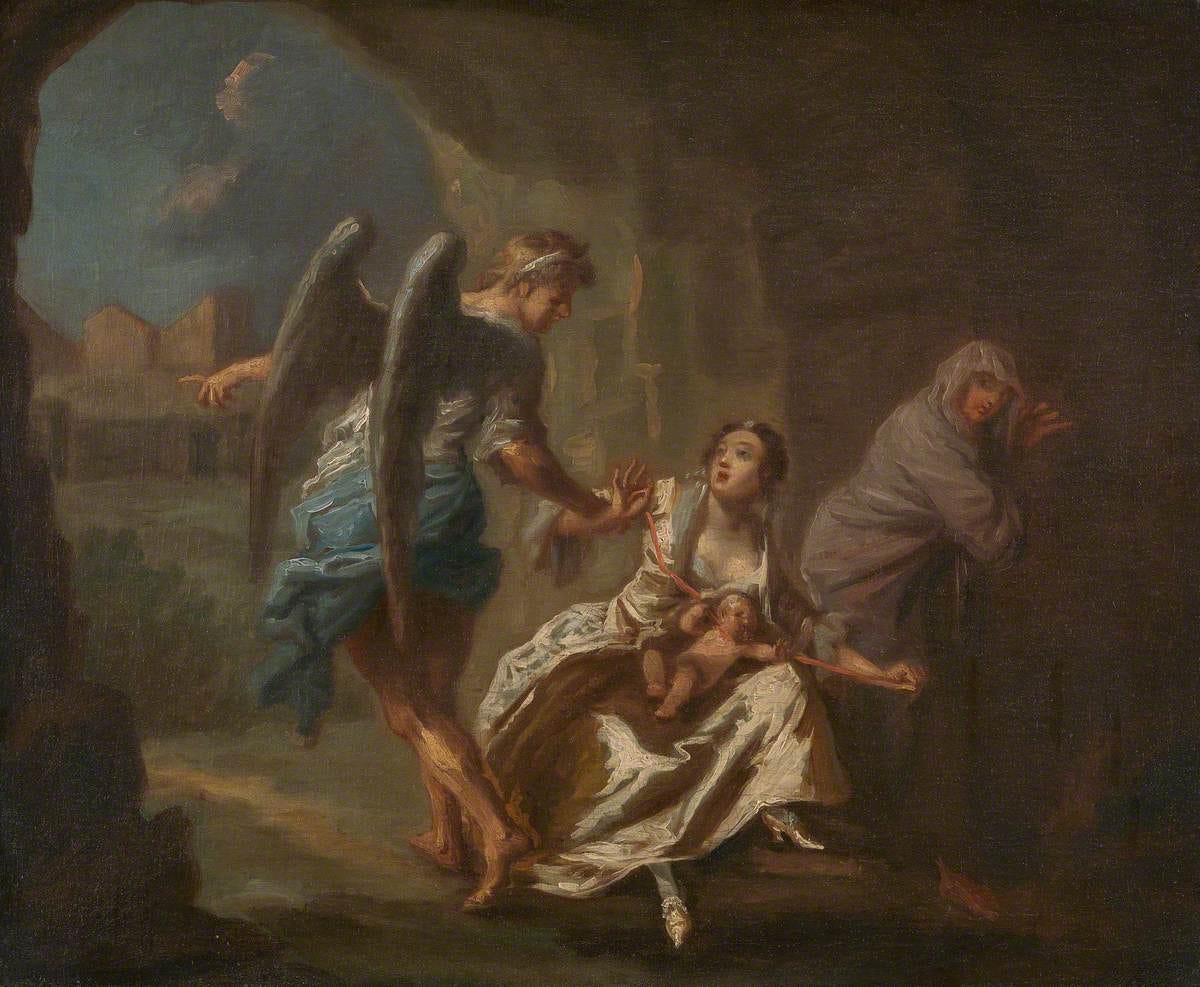Dear friends,
We meet the Harlowe family deep in midst of their grief. Clarissa’s mother upbraids herself for her own passivity, for allowing two children to make her forget she was mother to a third. Arabella regrets the cruelty of her letters; James the severity with which he tried to reclaim Clarissa from sin. We may well question whether this was ever truly his intention, but it is evidently the thought he hides behind.
During the last fortnight, Clarissa’s body has taken the journey from London to her father’s house, the family have viewed her remains, and she has been laid to rest. Events ran smoothly but not without contention. In their grief, the respective parties have disagreed over who has rights to Clarissa’s body. Even sweet Anna Howe makes the case that she was the only person who purely and truly loved Clarissa while she was alive: “We had but one heart, but one soul, between us.” She might be right. Lovelace, by comparison, is deluded when he raves:
“Surely nobody will dispute my right to her. Whose was she living? Whose is she dead, but mine?”
It was only to be expected then, that the families would be unable to agree on the executorship of Clarissa’s will. Clarissa’s foresight is proven when the will takes six hours to read, with the Harlowes falling into fits of grief and disputes about her possessions. The theme of money once more rears its ugly head. Unsurprisingly, Arabella and James are the chief will-disputers.
Meanwhile, blame is fiercely apportioned and passed around. The Harlowes blame Lovelace; Lovelace blames the Harlowes and the “hellborn nymphs” in his service. Cousin Morden shrewdly writes that such blame is a “refuge” from grief; a way for the guilty to exonerate themselves.
For Lovelace the mental shift of all blame away from himself has only one, inevitable, conclusion. He shakes off his remorse. His suffering, as he begins to see it, is merely the result of disappointed hopes:
“I own that I am still excessively grieved at the disappointment this admirable woman made it so much her whimsical choice to give me. But since it has thus fallen out; since she was determined to leave the world; and since she actually ceases to be; ought I, who have such a share of life and health in hand, to indulge gloomy reflections upon an event that is passed; and being passed, cannot be recalled?
“It gives me hope that I shall quickly be what I was — life, spirit, gaiety, and once more the plague of a sex that has been my plague, and will be every man’s plague, at one time or other of his life.”
Lovelace is once more in the company of rakes and we start to see him talking about women in his former, misogynistic, style. He echoes the patter of Mowbray’s letters at the start of the fortnight. In letters 480 and 496 Mowbray writes of women as if they exist merely to be taken advantage of, asking, “Are not all the girls forewarned?” Surely then, they have only themselves to blame if they are caught.
Now reformed, Belford tries to impress upon Lovelace the importance of a serene, penitent death, like Clarissa’s. No-one wants to die in torment like Belton or Sinclair, whose fears and regrets burst out in violent rages in letter 499. The magnetic force of the prose, the repulsive imagery make this one of the most riveting letters in the novel. Richardson has created a catalogue of ‘good’ and ‘bad’ deaths that press home his moral lessons, emphasising the fleeting nature of life compared with the eternity of death:
“I quit the solemn mansion, the symbolic coffin, and forever, the glory of her sex, and ascend with those who, in a few years, after a very short blaze of life, will fill up the other spaces of the same vault, which now (while they mourn only for her whom they jointly persecuted) they press with their feet.”
Yet another of the novel’s moral lessons coheres in these grief stricken letters: that a reformed rake does not make the best husband. That women cannot change men, however hard they try. Belford makes the case in letter 499, that women of true honour should reject rakes solely for their impure views of women. They should reject, “the address of every man whose character will not stand the test of that virtue which is the glory of the woman.” Once again, we see Richardson getting behind the idea that men should be held to the same moral standards as women. There is something very poignant then, about Clarissa’s posthumous letter to Lovelace and her final, open-hearted confession:
“To say I once respected you with a preference is what I ought to blush to own, since at that very time I was far from thinking you even a moral man; though I little thought that you, or indeed any man breathing, could be what you have proved yourself to be.”
A little bit of housekeeping: We are entering the final phase of the novel where the letters become more erratic and distant in time. As a result, these blog posts will also become less frequent, but I aim to post at least once a month.
If you would like to follow our read-along please subscribe below, visit your Substack subscription settings and make sure Letters & Libations is checked. Please get in touch if you would like to be added to the Instagram chat group.
Featured image is ‘The Angel of Mercy’ 1746, by Joseph Highmore, courtesy of Yale Centre for British Art.


